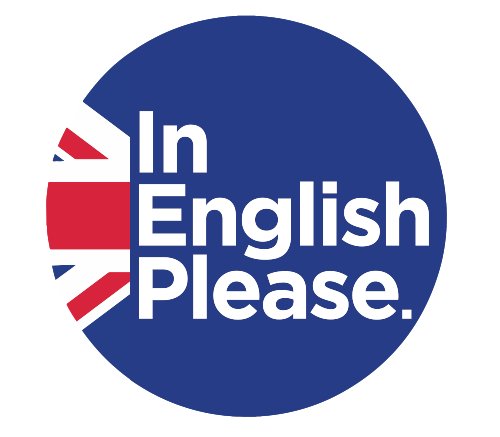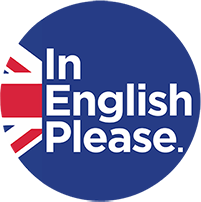Present Perfect Continuous

Structure of the present perfect continuous
Now we’re going to dive into the present perfect continuous tense.
The present perfect continuous tense is used to describe an action that started in the past, is still ongoing in the present, and is expected to continue in the future.
It follows this structure: Subject + have/has + been + verb (ing)
Look at these examples to see how easy it is!
I have been studying English for three hours. He estado estudiando inglés durante tres horas.
This means I’ve been studying English without stopping for three hours, and I’m still studying now.
She has been cooking dinner since 6 o’clock. Ella ha estado cocinando la cena desde las 6.
This means she started cooking dinner at 6 o’clock and is still cooking now.
He has been jogging every morning for a month. Él ha estado corriendo todas las mañanas durante un mes.
This means he’s been jogging every morning for the past month, and he’s still doing it now.
They have been waiting for the bus since noon. Ellos han estado esperando el autobús desde el mediodía.
This means they started waiting for the bus at noon and are still waiting at the current time.
Uses of the present perfect continuous
- When we use the present perfect continuous we can use for or since to express duration:
For:
He has been studying French for two months. Ha estado estudiando francés durante dos meses.
They have been renovating their house for a year. Han estado renovando su casa durante un año.She has been playing the piano for five years. Ha estado tocando el piano durante cinco años.
He has been living in London for two months. Ha estado viviendo en Londres durante dos meses.
We have been studying English for a year. Hemos estado estudiando inglés durante un año.
They have been traveling around Europe for three weeks. Han estado viajando por Europa durante tres semanas.
She has been learning to cook Italian cuisine for a while. Ha estado aprendiendo a cocinar cocina italiana desde hace un tiempo.
Since:
I have been studying English since last year. He estado estudiando inglés desde el año pasado.
She has been learning to play the guitar since last summer. Ha estado aprendiendo a tocar la guitarra desde el verano pasado.She has been practicing yoga since she was a teenager. Ha estado practicando yoga desde que era adolescente.
He has been playing guitar since he was a child. Ha estado tocando la guitarra desde que era niño.
We have been living in this neighborhood since 2010. Hemos estado viviendo en este barrio desde 2010.
They have been studying Spanish since high school. Han estado estudiando español desde la escuela secundaria.
She has been volunteering at the local shelter since she moved here. Ha estado haciendo voluntariado en el refugio local desde que se mudó aquí.
- If the duration is unknown you can use words like lately or recently:
Lately:
He has been eating healthier lately. Ha estado comiendo más saludable últimamente.
They have been exercising regularly lately. Han estado haciendo ejercicio regularmente últimamente.She has been reading a lot of mystery novels lately. Últimamente ha estado leyendo muchas novelas de misterio.
He has been cooking more healthy meals lately. Últimamente ha estado cocinando comidas más saludables.
We have been spending more time outdoors lately. Últimamente hemos estado pasando más tiempo al aire libre.
They have been watching a lot of movies lately. Últimamente han estado viendo muchas películas.
She has been exercising regularly lately. Últimamente ha estado haciendo ejercicio regularmente.
Recently:
She has been traveling a lot recently. Ha estado viajando mucho últimamente.
We have been spending more time outdoors recently. Hemos estado pasando más tiempo al aire libre últimamente.
She has been reading more books recently. Ha estado leyendo más libros últimamente.
He has been redecorating his apartment recently. Últimamente ha estado redecorando su apartamento.
They have been trying out new restaurants in the city recently. Últimamente han estado probando nuevos restaurantes en la ciudad.
She has been learning to bake different types of bread recently. Últimamente ha estado aprendiendo a hornear diferentes tipos de pan.
Interrogative and negative sentences
Making negative and interrogative sentences in present perfect continuous is quite simple. Here’s a brief explanation:
Negative Sentences
To form a negative sentence, you just need to add “not” after “have” or “has”.
Subject + have/has + not + been + verb-ing. For example:
She has not been studying English recently. Ella no ha estado estudiando inglés últimamente.
We have not been playing tennis for long. No hemos estado jugando al tenis por mucho tiempo.They have not been playing video games all day. No han estado jugando a videojuegos todo el día.
We have not been eating junk food lately. No hemos estado comiendo comida rápida últimamente.
Interrogative Sentences
To form an interrogative sentence, you just need to invert the order of the auxiliary verb “have” or “has” and the subject.
Have/Has + subject + been + verb-ing?
Have you been practicing yoga lately? ¿Has estado haciendo yoga últimamente?
Has he been reading any good books recently? ¿Ha estado leyendo algunos buenos libros últimamente?Have they been spending a lot of money recently? ¿Han estado gastando mucho dinero últimamente?
Have you been cooking dinner for the family? ¿Has estado cocinando la cena para la familia?
Now you are ready to take the test! 👉

